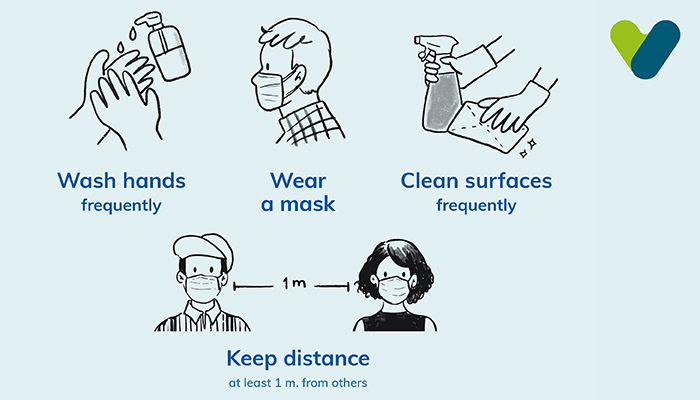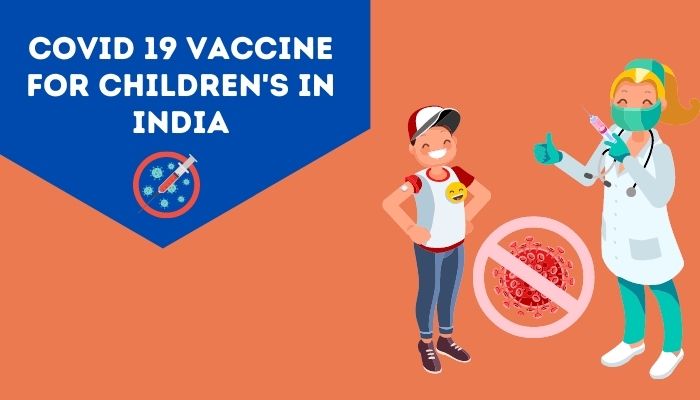In 2019, a new virus called severe acute respiratory disease syndrome 2 (SARS-2), or Coronavirus, had an outbreak in China's Wuhan.
By March 2020, the World Health Organisation had declared the COVID-19 outbreak as a pandemic. The pandemic has not ended yet, and many countries are still reporting a high number of cases of COVID-19. The countries with COVID-19 cases still monitor their countries' situation and vaccines provided to the people. The US Centres for Disease Control and Prevention, WHO, and many other groups have shared safety tips for personal protection against COVID-19 while being indoors.
Safety Tips While Being Indoors
There are many different ways by which you can prevent CoronaVirus from infecting you, and it is essential to stay protected from this deadly virus that travels through even when you are inside your home. Few Covid-19 prevention tips while being indoors are –
- Immunity-Boosting – It is essential to maintain and boost your immunity levels while indoors to protect yourself from being infected by Coronavirus as this deadly virus travels through air molecules. When indoors, it is critical to take vitamins and minerals such as Vitamin B12, Vitamin B3, Magnesium, and Vitamin C to boost your immunity levels. Consuming drinks that contain things such as ginger, lemon, and turmeric can significantly increase your immunity levels and help your body fight against the deadly covid-19 virus.
- Disinfection of Things – While indoors, it is vital to disinfect things brought from outside. Studies have indicated that the covid-19 virus can stay in the air and surfaces for a few hours to multiple days. The covid-19 virus can remain on copper surfaces for about 4 hours, on cardboard for about 24 hours, and on items such as plastic and steel for more than 72 hours. It is advisable to regularly disinfect all surfaces of frequently used items indoors, such as TV remotes, switches, door handles, phones, counters, doorknobs, and other things.
- Use of tissues – As the coronavirus particles travel through the air, it is very important to use tissues every time you sneeze or cough. Your usual coughing is not a symptom of COVID-19; however, the primary mode of this virus transmission is through droplets and surfaces. Therefore, it is essential to cover your mouth when you sneeze or cough to prevent anything from spreading to other members of your household.
- Washing of Hands – Washing hands is one of the most important COVID-19 prevention tips. You have to forget your old hand washing habits and wash them more frequently and for longer durations. The Centers for Disease Control and Prevention recommends washing your hands for about 20-30 seconds with liquid soaps or ordinary soaps multiple times a day, especially when you come back home after having an outdoor visit.
- Touching Of Eyes – While being indoors, everyone now and then feels their time. However, one of the best prevention tips for indoors is not touching your eyes, nose, or mouth that much. As mentioned earlier, covid-19 is a virus that spreads from human to human through air droplets or touching surfaces that have the deadly virus on them. This deadly virus can reach your respiratory tract through your face. There are big chances of you coming in contact with the virus when you meet a person infected with this deadly COVID-19 virus. The droplets might reach out to your face, clothes, eyes, and other parts of the body. You might even end up touching a surface that is infected with the virus. Hence, it is recommended not to touch your face, eyes, or mouth that much, especially when you come back outdoors.
Symptoms of Covid – 19
There have been cases of indoor infection of Coronavirus as well. It is essential to be aware of all the covid-19 symptoms such as –
- Headache
- Sore Throat
- Body Ache
- Heartache
- Nausea
- Diarrhoea
- Coughing
- Fever
- Breath Shortness
- Congestion or Runny Nose
- Trouble While Breathing
The COVID-19 virus can lead to multiple other issues. This deadly virus can cause respiratory failure, pneumonia, septic shock, liver problems, and death in extreme cases. In response to the Coronavirus, the immune system releases cytokine, which ends up flowing into the bloodstream with these inflammatory proteins. Cytokines overflow can end up killing tissues and damaging some vital organs. In many covid-19 cases, patients have needed a new set of lungs through lung transplantation. The symptoms of coronavirus disease are to be taken with seriousness.
What to do if you think you are infected with Coronavirus?
Even safely beyond indoors inside an area where corona infections have a high rate might not be safe at all. If you think the COVID-19 virus has infected you, you should –
- Stay at home – If you find yourself with even mild symptoms of covid-19 such as headache, coughing, nausea, and other fever, it is vital to stay at home in an isolated room away from the rest of the people indoors. It is critical to use separate utensils and even bathrooms to avoid the spreading virus inside your home if you are infected.
- Medical Attention - If the virus has infected you, it is very important to get proper medical attention as the symptoms grow and become stronger. In some cases, if symptoms are ignored, the virus can turn out to be life-threatening. Your doctors can advise you on medicines to be taken via video calls or phone calls.
Even as the covid-19 cases are going down because of more vaccines and preventions, it is very important to take severe precautions while outside or even staying indoors. The Coronavirus has been seen to make returns in the form of waves in multiple countries. It is recommended to keep inside your home as much as possible until this pandemic ends and take all kinds of necessary precautions and protection to protect yourself and your family members.


